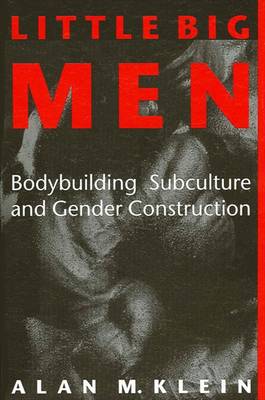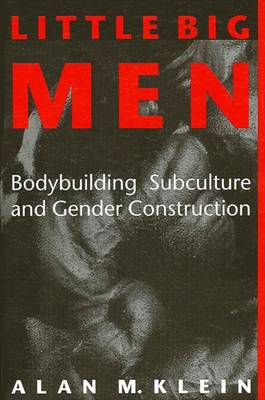
- Afhalen na 1 uur in een winkel met voorraad
- Gratis thuislevering in België vanaf € 30
- Ruim aanbod met 7 miljoen producten
- Afhalen na 1 uur in een winkel met voorraad
- Gratis thuislevering in België vanaf € 30
- Ruim aanbod met 7 miljoen producten
Omschrijving
Little Big Men is a study of competitive bodybuilders on the West Coast that examines the subculture from the perspective of bodybuilders' everyday activities. It offers fascinating descriptions and insightful analogies of an important and understudied subculture that has risen to widespread popularity in today's mass culture.
Alan Klein conducted his field study of bodybuilding in some of the world's best-known gyms. In studying the social and political relations of bodybuilding competitors, Klein explores not only gym dynamics but also the internal and external pressures bodybuilders face. Central to his examination is the critique of masculinity. Through his study of "hustling" among bodybuilders, Klein is able to construct a social-psychological male configuration that includes narcissism, homophobia, hypermasculinity, and fascism. Because they exist as exaggerations, these bodybuilder traits come to represent one end of the continuum of modern masculinity, what Klein terms comic-book masculinity. This study is a rare foray into the critique of contemporary American macho.
Specificaties
Betrokkenen
- Auteur(s):
- Uitgeverij:
Inhoud
- Aantal bladzijden:
- 326
- Taal:
- Engels
- Reeks:
Eigenschappen
- Productcode (EAN):
- 9780791415603
- Verschijningsdatum:
- 14/09/1993
- Uitvoering:
- Paperback
- Formaat:
- Trade paperback (VS)
- Afmetingen:
- 154 mm x 234 mm
- Gewicht:
- 498 g

Alleen bij Standaard Boekhandel
Beoordelingen
We publiceren alleen reviews die voldoen aan de voorwaarden voor reviews. Bekijk onze voorwaarden voor reviews.











